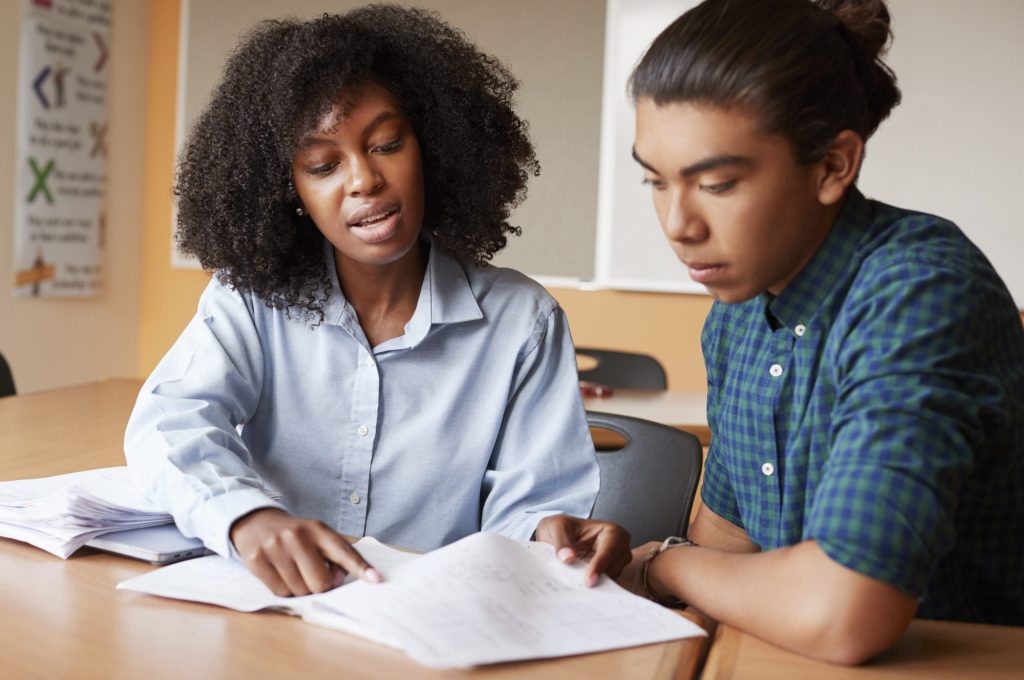Supporting teenagers to thrive post-mocks
21st January, 2025
Performance Coach Pepita shares her top tips to help you support your teenager post-mocks:
Get to know your strengths!: Get your teen to do the VIA Character Strengths survey and brainstorm with them how they can use their top strengths to optimise motivation, focus and wellbeing!
Get to know priorities: Ask them to share how they would prioritise their work for their subjects on a scale from 1-10, based on their mock results to improve confidence and understanding. For the lower priorities, write out specific and positively framed mini goals to improve performance, so that it aligns with their potential. Read more about how this might look here.
Turn procrastination into positive action!: If they procrastinate, ask them to try ‘5 minutes of positive action’ to make a deal with themselves to get started on their work, but to do it for just 5 minutes. This works magic with overcoming the psychological barrier of getting started. Once they have started, they usually find it easier just to carry on! Or as postulated by Isaac Newton, ‘an object at rest stays at rest, an object in motion stays in motion’.
Become your own coach: Ask them to think about ‘what advice your older self would give you’ and write this down freely and with no judgement. Based on this reflection, see if you can come up with some new things to try to increase focus and performance. A simple activity to activate our inner coach! Read more about how to encourage your teenager to do this here.

Setting mini-goals
Many students I work with set themselves great and highly inspiring goals but often feel overwhelmed and without a plan (and smaller steps outlined), to help them bridge the gap to achieve their goals successfully.
When it comes to effective goal achievement, I therefore work closely with students on breaking down their big goals into smaller and positively framed ‘mini’ goals to help increase motivation, resilience, and sense of achievement, working together on celebrating small successes!
I always let the students I work with share their ideas with me and over the years I have acquired a phenomenal list of ‘mini goals’ entirely created by students for student to help accelerate progress in smaller steps. To share just a few of the ‘mini goals’ students have
created:
• Keeping my phone away from my study area – leave it to charge on the other side of the room (out of reach – out of sight!)
• Use the Forest App to compete with a friend to reduce my screen time when working
• Get myself a phone jail!
• Listen to music when revising as the silence is too loud and gets me distracted by listening to my worry thoughts
• Do my homework as soon as I get home from school – ‘Do it now!’ – to prevent going on Netflix and into ‘not gonna do my homework now but later’ mode
• Buy an old-fashioned alarm clock and put it under my bed (or in the wardrobe) to avoid putting my phone repeatedly on snooze and being late for school
• Study when I am supposed to study – disconnect from WIFI when I’m working to stop opening new tabs for random stuff

Activating your inner coach
I recently had a session with a Year 11 boy who, despite his great potential, struggled with exam performance and handing in work on time.
We had done some great work on procrastination, exploring how procrastination is not a ‘time-management’ but an ‘emotion-regulation’ problem, as most teens procrastinate because they feel anxious, overwhelmed, or unsure how to solve a problem, and resort to escapism to avoid negative emotions.
In this session, I asked this boy ‘what advice his older self would give him’? and to share his thoughts freely. We did this because I had noticed how difficult he found taking advice from mum or teachers and I wanted to explore a new avenue for him to work on ‘perspective’.
Within a second, the boy shared ‘he would tell me to try to learn as much as you can, find ways not to be so distracted and that school is worth it because you can get good GCSEs’.
Within the following minutes, we had written down some creative new goals to work to reduce distraction and procrastination (far better than I could come up with!).
What had changed? He had been given autonomy. I had asked him for HIS advice. I listened to him as an expert in our session. A simple strategy, perhaps worth trying with your procrastinating teen?
If your teenager would like to book in a session with Pepita or one of our team of performance coaches to find their strengths and feel confident moving forward, please get in touch with a member of our team